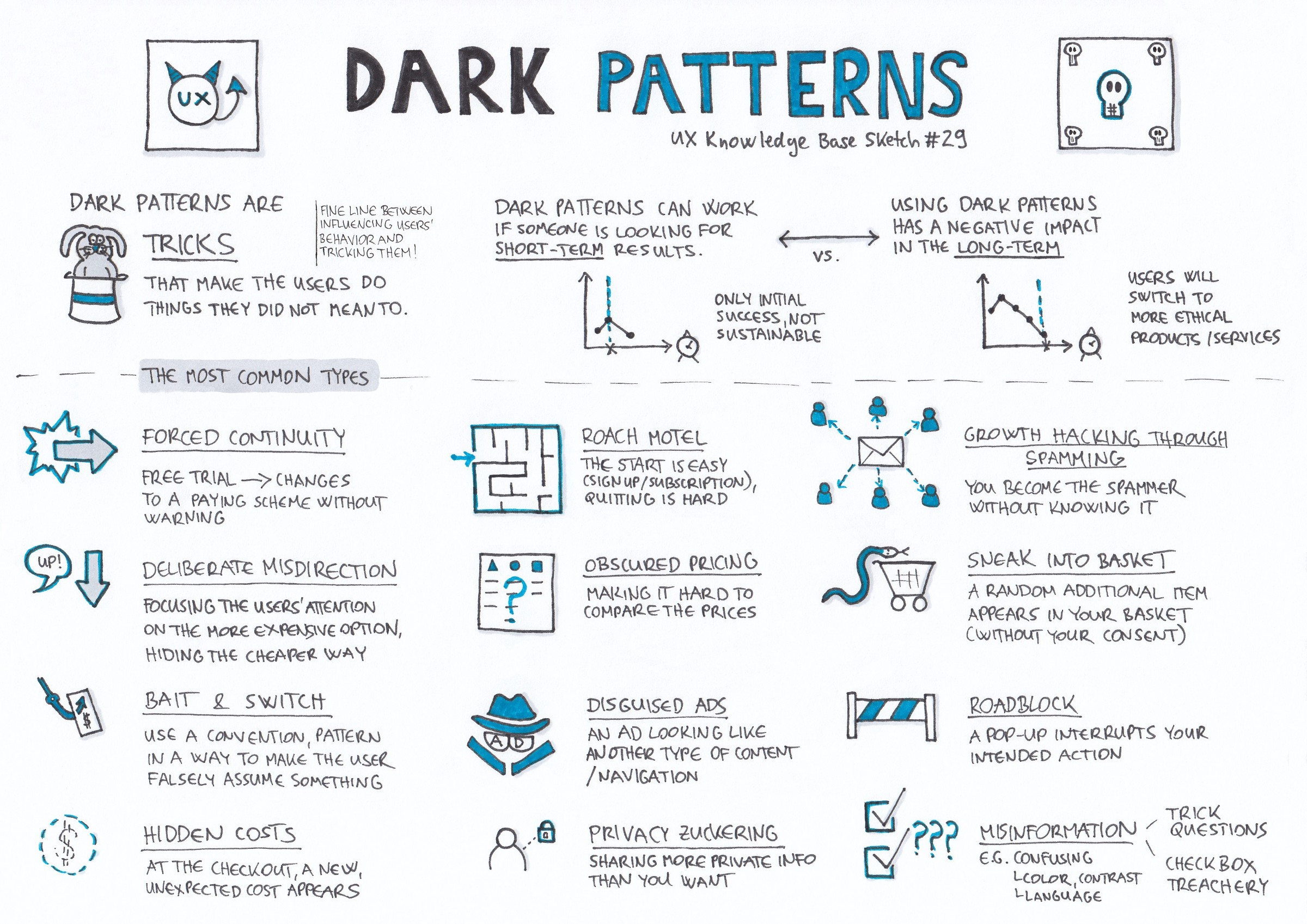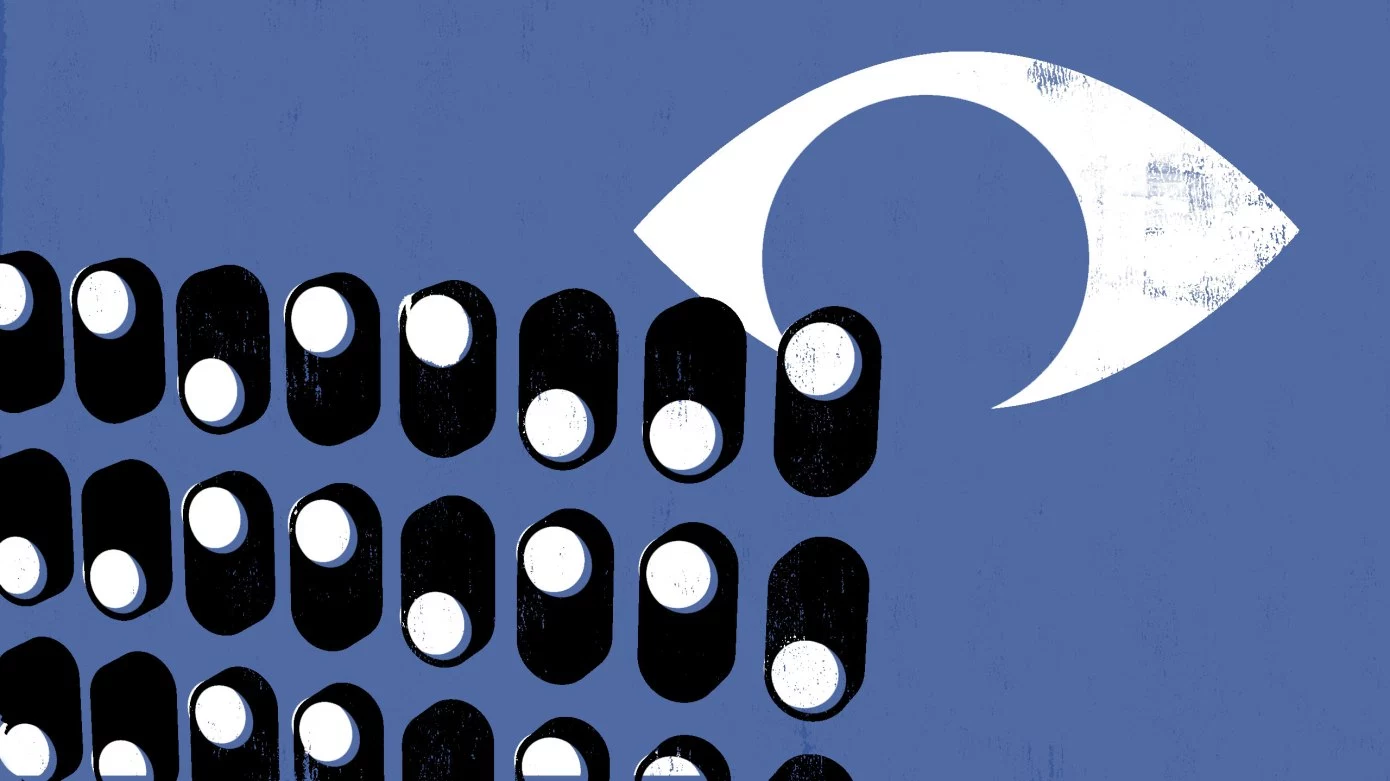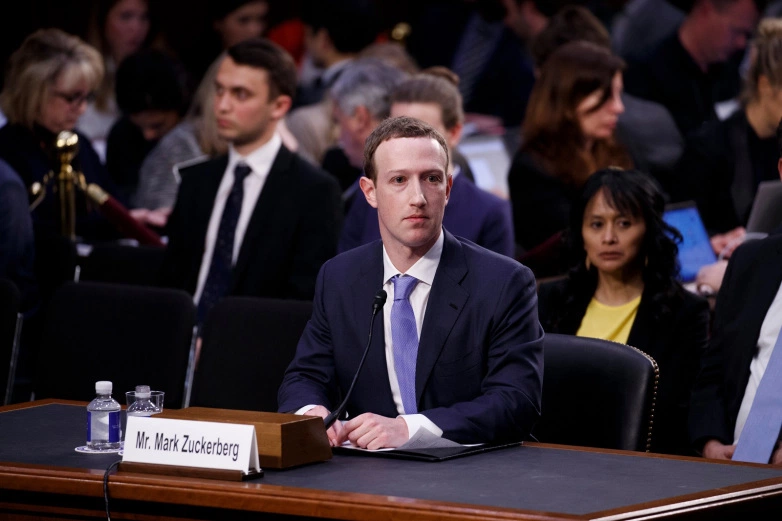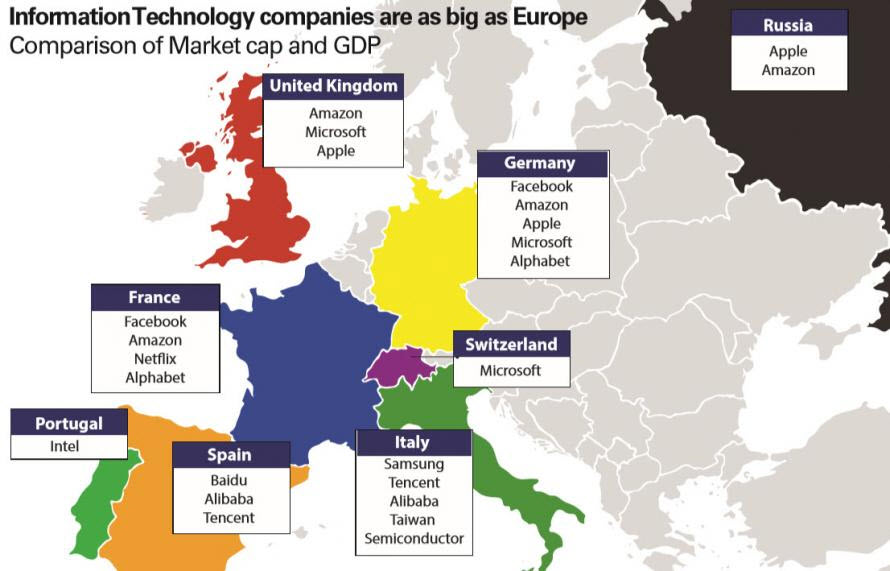Dark Patterns and the Law: How US Regulators Try to Control Product Mechanics and Reduce the Influence of Tech Companies

"Dark patterns" (dark patterns) - these are the schemes of user involvement in the product, in which there is a game with a zero amount: the product wins and the consumer loses. Simply put, this is an unlawful declination of the user for certain actions.
As a rule, in society, morality and ethics are responsible for resolving such issues, but in technology everything moves so fast that morality and ethics simply do not have time. For example, when Google tried to make its own committee on the ethics of artificial intelligence, it fell apart just a week later. True story .

The reason, in my opinion, is as follows. Technology companies understand the whole depth of the problem, but, alas, they cannot solve it from the inside. In fact, these are two opposite vectors and intentions: 1) to fulfill their quarterly goals for profit, reach and involvement, and 2) to do good for citizens in the long term.
While the best minds are struggling to solve this problem, the most effective thing that has happened is to make products on a business model in which the client pays for the product (or someone pays for it: employer, sponsor, dad). In the advertising model that sells your data, solving the problem is not easy.
And at that moment, regulators enter the scene. Their role is to act as the guarantor of civil liberties, morality and basic rules (as well as coming to power on the basis of populist laws next season). States in this sense are extremely important. The only problem is that they are very slow and extremely non-adaptive: try to create a timely, progressive law. Or cancel the law, if you have already passed it, and suddenly realized that it does not work. (Laws on time zones do not count.)

I must say that the appearance in the US Congress of Zuckerberg (Facebook), Pichai (Google) and Dorsey (Twitter) a year ago provoked a lot of interesting movement. Senators began to come up with laws that help limit something: the distribution and use of users' personal information, the use of “dark patterns” in interfaces, etc.
A final example: a pair of senators recently proposed restricting mechanics involving people in the use of products through manipulation. How they will determine what is manipulation and what is not is unclear.
There is a very fine line between cognitive distortions, desires and intentions of different parties. In this regard, using a simple user is much easier than the head of a corporation, but everyone has their own cognitive biases . And this, in many ways, is exactly what makes us humans, and not just breeding biorobots.

Comparison of the market capitalization of technology companies and GDP of European countries (2018).
In fact, it is very likely that the old government is dead of how much new technology companies have new power:
- If Facebook were a state, then it would be the largest country in terms of the number of citizens (MAU 2.2 billion), one and a half times ahead of China (1.4 billion) and India (1.3 billion). Moreover, if de jure leaders of democracies are replaced every 4-8 years, in capitalism there are practically no mechanisms for removing the leader if he owns a controlling stake.
- Google now knows more about the intentions and desires of people than all pastors, shamans, oracles and priests for the entire existence of world religions. Such power over data is unprecedented in the entire recorded history of mankind.
- Apple is forcing us to do amazing things: pay an ultra-expensive annual subscription to a $ 1,000 handheld, for example. Try to unsubscribe: it immediately changes the perception of your social status, kototsya reputation of the innovator, and reduces the interest of the opposite sex. (Just kidding.)
- Up to 40% of the cloud infrastructure on which the Internet spins belongs to Amazon (AWS). The company is the dominant "supplier" of the planet, and is responsible for bread, information and entertainment.
What's next? Think so:
- The US version of GDPR is just around the corner.
- Technology companies will undergo a series of antitrust reviews.
- Inside tech. companies will see dissatisfaction with non-humanistic policies, and employees will try to influence management decisions more.
What do you think about state regulation of grocery and design patterns?
